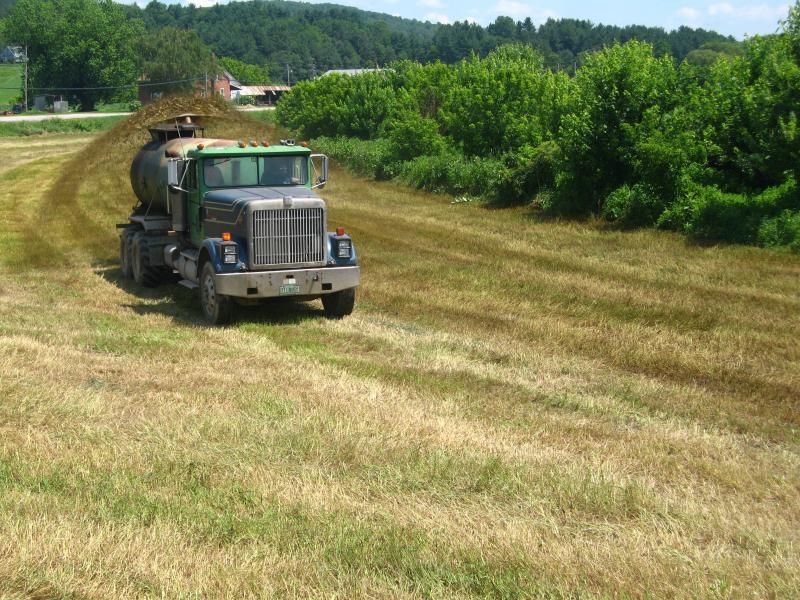
Features
Applications
Business/Policy
Environment
Environment Protection
Other
Protection
Sustainability
United States
VT winter manure spreading ban ends
April 4, 2016 by Press release
 Vermont Agency of Agriculture
Vermont Agency of AgricultureApril 4, 2016, Montpelier, VT – April 1 was the end of the winter manure spreading ban imposed by the current Accepted Agricultural Practice Regulations (AAPs).
However, the Vermont Agency of Agriculture, Food, and Markets (VAAFM) urges farmers to carefully assess their individual situation before spreading manure to ensure regulatory compliance. The current AAPs require that all agricultural wastes be managed in order to prevent adverse impacts to water quality. That means that while it is legal to spread manure once the winter ban is over, manure must still be applied in a way that does not result in runoff to surface water, or across property boundaries. If these conditions occur as a result of spreading manure, a farmer could be subject to an enforcement action.
To help farmers remain in compliance with current AAPs, the Agency of Agriculture recommends the following:
- If you still have room in your manure pit, wait until snow is off the fields before you spread manure.
- If you do not have room in your pit, reach out to the Agency of Agriculture to seek alternative solutions.
- Do not spread manure on saturated ground or before major rain events.
- If emergency manure storage conditions require spreading on saturated ground, observe the following protocols: avoid spreading when rain is expected; spreading manure before or during a rain storm can increase manure runoff more than 10 times normal; spread at least 150 feet from top of stream banks, ditches or roadside ditches; select the most level fields available and avoid significant (>5%) slopes; utilize reduced (<3,000 gallons/acre) spreading rates; select fields with cover crops or good residue cover.
- After spreading any nutrient (liquid or solid manure, compost, or fertilizer) be sure to keep accurate records of the manure or nutrient applications.
In addition, those farms operating under an NRCS 590 compliant nutrient management plan are reminded that application of manure to frozen ground or snow-covered ground, or in conditions where offsite losses of nutrients are likely, is prohibited – unless mitigated by the criteria outlined in their plan.
The Agency of Agriculture urges all farmers considering applying manure at this time of year to operate with the utmost of care so that water quality is protected.
“Individual conditions vary significantly across the state,” said Chuck Ross, Vermont’s Secretary of Agriculture, Food, and Markets. “Farmers need to assess their fields carefully and take action to ensure they are in compliance and are protecting our waterways.”
The manure spreading ban is a regulation that has been in place since 1995 under the Accepted Agricultural Practice rules. Vermont was a leading state in developing such a ban. In recent years, several other states have considered adopting, or have adopted, the standard. Research has shown that manure applications on frozen ground can increase the runoff potential.
This year, the existing AAPs will be replaced by the Required Agricultural Practices (RAPs), which reflect updated water quality protection standards as required by the Act 64 Water Quality Bill signed into law in June, 2015. The RAPs are intended to reduce agriculture’s impact on the state’s waterways.
For questions about current regulations or more information about the RAPS and how to participate in the rule-making process, please call the Agency of Agriculture, Food and Markets at 802-272-0323 or visit: http://agriculture.vermont.gov/water-quality/regulations/rap.